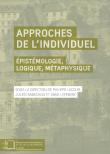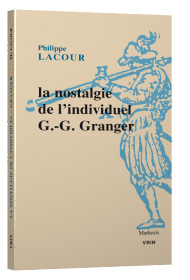
When Translation Goes Digital. Case Studies and Critical Reflections (Renée Desjardin, Claire Larsonneur and Philippe Lacour (eds), Palgrave / Macmillan, 2020.
This edited book brings together case studies from different contexts which all explore how a rapidly evolving digital landscape is impacting translation and intercultural communication. The chapters examine different facets of digitization, including how professional translators leverage digital tools and why, the types of digital data Translation Studies scholars can now observe, and how the Digital Humanities are impacting how we teach and theorize translation in an era of automation and artificial intelligence. The volume gives voice to research from across the professional and academic spectrum, with representation from Hong Kong, Canada, France, Algeria, South Korea, Japan, Brazil and the UK. This book will be of interest to professionals and academics working in the field of translation, as well as digital humanities and communications scholars. More about this book.

Reason in the Singular. Reflections on the Epistemology of Jean-Claude Passeron (La raison au singulier. Réflexions sur l’épistémologie de Jean-Claude Passeron, Paris, Presses Universitaires de Nanterre, 2020).
Are Human and Social Sciences real sciences? If their pretension is to be taken seriously, how can their effective cognitive gestures be accounted for, without any a priori bias? Can their epistemology be written in an immanent way, by following precisely their operations, while emphasizing the value of their results? Can they be accepted within scientific rationality, even though their methods are different from those of more exact disciplines? Jean-Claude Passeron tried to answer these questions in an accurate way, drawing from his experience as both a sociologist and an obstinate theorist. This book constitutes the first attempt to synthesize his epistemological work – a work of more than half a century. It arbitrates the debate on the “popperian” (or not) nature of the logical space of Human and Social Sciences, through a minute reconstitution of Passeron’s point of view, beyond its ambiguities. In doing so, it sketches the paradoxical figure of a singular-oriented reason, eager to know singularities in their contingent emergence and the richness of their historical context. E-book available online (for free).

Approaching the Individual. Epistemology, Logic, Metaphysics. (Approches de l’individuel. Epistémologie. Logique. Métaphysique, Paris, PENS, 2017 ; avec Julien Rabachou et Anne Lefebvre).
The notion of the individual challenges Philosophy in many different ways. How can thought and knowledge pretend to capture what presents itself as both the atom and the criteria of reality? Is it only right to consider it as such: wouldn’t it be, rather, a secondary aspect of reality, whose fundamental nature would be pre-individual? In many respects, this difficulty is that of clinical reason – not in an exclusively medical (or therapeutic) meaning, but in the sense of a face-to-face with the “this/such” and a pretension to its minute knowledge. Logic, Epistemology and Metaphysics are questioned, according to both distinct and combined approaches, in order to explore, in a methodical and diversified way, a common problem. Contents. Also available in E-book.

Nostalgia for the Individual. An Essay on Gilles-Gaston Granger’s Practical Rationalism (La nostalgie de l’individuel. Essai sur le rationalisme pratique de Gilles-Gaston Granger, Paris, Vrin, collection “Mathèsis”, 2012)
Critical advocate of formalization and structuralism, Gilles-Gaston Granger also developed a penetrating view of 20th century social sciences. Even more than a “comparative epistemology”, his work consists indeed in both an ambitious metaphysics of singularity and a bold reformulation of practical rationality. Granger’s reflection combines ontological commitment and critical concern together into a transcendental philosophy of concrete experience. An atypical type of existentialism, this dialectic philosophy of symbolic forms conceives rationality as an unachieved task (open quest). Because the individual dimension of reality is not given but met at the end of a long objectifying detour, philosophy is given the form of a rigorous operational hermeneutics. The Nostalgia for the Individual designates the intimate movement of this rationalism of minute mediation. This book was published by the French editor Vrin, in the “Mathesis” collection, directed by Pr. Hourya Bénis-Sinacœur, an emeritus Director of Studies at the French CNRS in Philosophy of Sciences and a former student of Granger. Where can I get this book ?